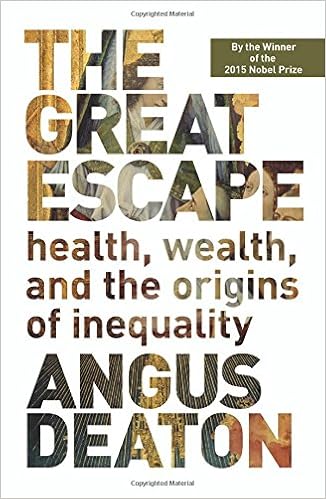The "escape" in the title of the book refers to escape from poverty, or perhaps better, the increase in living standards that the post-industrial countries have experienced during the past hundred years or so, and that the "emerging" economies experience right now.
However, towards the end of the book Deaton turns to discussing about what still holds some countries (and also some fractions of populations within generally wealthy countries) back so that they are not able to "make the escape" despite decades of foreign aid.
Was it good?
The book is good; the historical account on how and why wealth has generally increased in the "West" is quite informative and insightful, and especially the discussion concerning why some "third world" countries have not made it certainly makes one (at least me) think.
In addition, one particular merit of the book is that Deaton, throughout the book, introduces the measures cited (i.e. the measurement methodology) and discusses their strengths and weaknesses, instead of just citing the numbers or other results that the measures have yielded. In this manner, the reader is able to construct a significantly more mindful picture of the topics at hand. For example, according to Deaton, the answer to the question "how many poor people are in X" depends very, very heavily on the measure one uses. Moreover, even if one was to rely on interview methodology (in order to gain contextually relevant subjective assessments on poverty), wether one asks people to recall their consumption 7 or 30 days into the past can significantly tilt the poverty statistics into one way or the other.
The main take-away for me?
In addition to the high importance of methodology, perhaps the biggest insight for me (as a virtual layman in these matters) was that foreign aid so complex a question and that (at least according to Deaton) "mere giving" is in many if not most cases bound to do less good than bad for the recipient country. Thus, the more mindful and nuanced approaches discussed by Deaton (e.g. pay-per-results, subsidies for drug development for which the target clientele is mostly very poor etc.) really led me to see the current discussion about falling short of the 0.7% GDP target for foreign aid in Finland in quite a different light.
Who should read the book?
The book is probably of interest to anyone, as wealth, poverty and inequalities in these - both in global as well as in national scale - are quite universally relevant issues to basically everyone.
The book on Amazon.com: The great escape

No comments:
Post a Comment